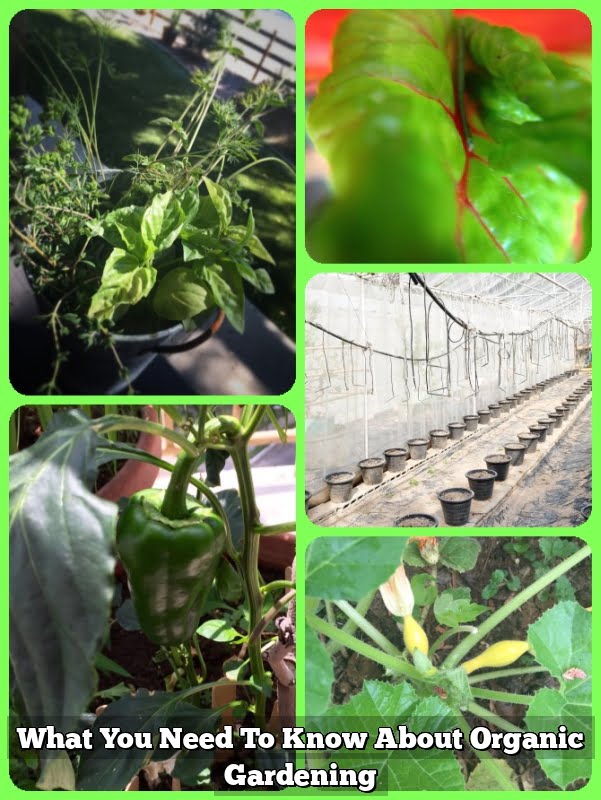Are you interested in growing your own organic vegetables? Do you want to learn how to maximize the health and productivity of your garden while minimizing the use of synthetic fertilizers and pesticides? If so, understanding the role of microbes in organic vegetable gardening is key.
Microbes, such as bacteria, fungi, and other microorganisms, play a crucial role in creating a healthy soil environment that supports the growth of nutrient-rich vegetables. In this article, we will explore the importance of microbes in organic vegetable gardening and how to cultivate a microbe-friendly soil environment.
Organic vegetable gardening focuses on natural and sustainable methods to grow healthy and nutritious produce. By harnessing the power of beneficial microbes, gardeners can enhance soil fertility, improve plant health, and boost crop yields without relying on chemical inputs. In this introductory section, we will provide an overview of organic vegetable gardening and highlight the fundamental role that microbes play in this practice.
To fully understand the significance of microbes in organic vegetable gardening, it is essential to grasp the intricate relationship between soil microorganisms and their impact on plant growth. By creating a hospitable environment for beneficial microbes in the soil, gardeners can promote a thriving ecosystem that supports plant nutrition and defense against diseases. This article aims to shed light on how these tiny organisms contribute to sustainable and environmentally-friendly gardening practices.
The Role of Microbes in Organic Vegetable Gardening
Understanding soil microorganisms and their significance is essential for any organic vegetable gardener. The soil contains a diverse community of bacteria, fungi, protozoa, nematodes, and other microorganisms that work together in a symbiotic relationship with plants. This complex web of interactions creates a healthy soil ecosystem that promotes strong root development, water retention, and disease resistance in vegetables.
Cultivating a microbe-friendly soil environment is key to successful organic vegetable gardening. Practices such as minimizing tillage, avoiding chemical fertilizers and pesticides, adding compost and mulch, and rotating crops can help create an environment where beneficial microbes can thrive. By maintaining a balanced microbial population in the soil, gardeners can ensure that their vegetable plants have access to all the necessary nutrients for optimal growth.
| Microbial Population | Crop Yield |
|---|---|
| High | Increase |
| Low | Decrease |
Understanding Soil Microorganisms and Their Importance
Soil microorganisms play a crucial role in the success of organic vegetable gardening. These tiny living organisms, including bacteria, fungi, protozoa, and nematodes, are essential for maintaining a healthy soil ecosystem. They help break down organic matter, release nutrients, improve soil structure, and protect plants from diseases.
Here are some key points to understand about soil microorganisms and their importance in organic vegetable gardening:
- Decomposition: Soil microbes are responsible for breaking down organic matter such as dead plants, leaves, and compost. This decomposition process releases essential nutrients like nitrogen, phosphorus, and potassium that are vital for plant growth.
- Nutrient Cycling: Microbes also play a role in cycling nutrients within the soil. This means they transform complex organic compounds into simpler forms that plants can absorb. As a result, they contribute to the overall fertility of the soil.
- Disease Suppression: Certain microbes have the ability to suppress plant diseases by competing with harmful pathogens or producing compounds that inhibit their growth. This natural defense mechanism can help reduce the need for chemical pesticides in organic vegetable gardening.
Overall, understanding the functions of soil microorganisms is essential for creating a thriving garden ecosystem. By cultivating a microbe-friendly soil environment, organic gardeners can harness the power of these beneficial microbes to promote healthy plant growth and sustainable gardening practices.
How to Cultivate a Microbe-Friendly Soil Environment
Introduction to Soil Health
One of the most crucial factors for successful organic vegetable gardening is the health of the soil. It’s important to understand that soil is not just a medium for plants to grow in, but it is a living ecosystem teeming with billions of microorganisms. Creating a microbe-friendly soil environment involves nurturing and supporting these beneficial microbes, which play a vital role in sustaining healthy plants.
Creating the Right Soil Conditions
The first step in cultivating a microbe-friendly soil environment is to ensure that your soil has the right physical and chemical properties. This includes creating well-draining soil with plenty of organic matter, maintaining the right pH levels, and ensuring proper aeration. Microbes thrive in soils with balanced moisture levels and ample oxygen, so it’s important to avoid waterlogged or compacted soils.
Adding Organic Matter and Microbial Inoculants
One of the best ways to support microbial life in your soil is by adding organic matter such as compost, manure, or cover crops. This not only provides essential nutrients for your plants but also serves as food for the diverse population of microbes. Additionally, incorporating microbial inoculants containing specific strains of beneficial bacteria and fungi can help introduce and establish beneficial microbes in your garden.
By implementing these practices and creating an environment that fosters microbial activity, you can greatly enhance the health and productivity of your organic vegetable garden. The result will be thriving plants with improved resistance to diseases, better nutrient uptake, and overall higher yields.
The Benefits of Using Microbes in Organic Vegetable Gardening
Some key benefits of using microbes in organic vegetable gardening include:
- Improved soil structure: Beneficial microbes help to create a crumbly, well-aerated soil structure that allows for better water infiltration and root growth.
- Enhanced nutrient availability: Certain types of microbes work to break down organic matter and release essential nutrients such as nitrogen, phosphorus, and potassium, making them more accessible to plants.
- Disease suppression: Specific strains of microbes can act as natural antagonists to soilborne pathogens, helping to suppress diseases that can affect vegetable crops.
In addition to these benefits, using beneficial microbes in organic vegetable gardening can also contribute to overall environmental sustainability. By fostering a healthy microbial community in the soil, you are promoting natural processes that minimize the need for synthetic fertilizers and pesticides. This not only helps to protect the ecosystem but also promotes a more sustainable approach to gardening.
Ultimately, the use of microbes in organic vegetable gardening contributes to creating a balanced and resilient garden environment. By harnessing the power of these tiny organisms, gardeners can enjoy higher yields, improved plant health, and an eco-friendly approach to growing their own food. Embracing microbial diversity in the soil is a fundamental aspect of successful organic vegetable gardening.
Different Types of Microbes for Organic Vegetable Gardening
Microbes play a crucial role in organic vegetable gardening, helping to create healthy soil and promote strong plant growth. There are several types of microbes that are beneficial for organic vegetable gardening, each with its own unique functions.
One type of microbe commonly used in organic vegetable gardening is mycorrhizal fungi. These beneficial fungi form symbiotic relationships with plant roots, increasing the plants’ ability to absorb nutrients and water from the soil. This ultimately leads to improved plant health and higher yields.
Another important group of microbes for organic vegetable gardening is nitrogen-fixing bacteria. These bacteria have the unique ability to convert atmospheric nitrogen into a form that plants can use, thus reducing the need for additional fertilizers.
In addition to mycorrhizal fungi and nitrogen-fixing bacteria, there are also beneficial rhizobacteria that help suppress harmful pathogens, as well as actinomycetes which play a role in decomposing organic matter and releasing nutrients into the soil. All of these different types of microbes work together to create a balanced and fertile soil ecosystem that supports healthy and productive vegetable gardens.
As gardeners strive for more sustainable and environmentally friendly practices, the use of organic vegetable gardening microbes continues to gain attention for its ability to improve soil health and plant productivity without relying on synthetic chemical inputs.
| Types of Microbes | Functions |
|---|---|
| Mycorrhizal fungi | Form symbiotic relationships with plant roots, increasing nutrient absorption |
| Nitrogen-fixing bacteria | Convert atmospheric nitrogen into a usable form for plants, reducing the need for fertilizers |
| Rhizobacteria | Suppress harmful pathogens in the soil |
| Actinomycetes | Aid in decomposition of organic matter, releasing nutrients into the soil |
Tips for Maintaining Microbe Diversity in Your Garden
Maintaining a diverse and healthy population of microbes in your garden is essential for promoting soil fertility and plant growth. Here are some tips for ensuring that your garden remains a thriving ecosystem for beneficial microorganisms:
Rotate Your Crops
One way to promote microbial diversity in your garden is by practicing crop rotation. When you continuously plant the same type of vegetable in the same location year after year, it can lead to the buildup of pathogens and depletion of specific nutrients in the soil. By rotating your crops, you can help maintain a balanced microbial community and prevent disease problems.
Use Organic Amendments
When amending your soil, opt for organic materials such as compost, manure, or organic fertilizers. These organic amendments provide a food source for beneficial microbes, helping them thrive and multiply in your soil. Avoid using synthetic chemicals that can harm or disrupt the natural microbial populations in the soil.
Minimize Disturbance
Excessive tilling and soil disturbance can disrupt the delicate balance of microbial communities in your garden soil. Instead, try to practice no-till gardening whenever possible to preserve the structure and biodiversity of the soil microbiome.
By incorporating these tips into your gardening practices, you can help maintain a healthy and diverse population of microbes in your garden. This will contribute to overall soil health and promote optimal conditions for growing nutrient-dense and flavorful organic vegetables.
Case Studies
In conclusion, the use of microbes in organic vegetable gardening has been shown to have a significant impact on the health and productivity of the garden. Through understanding the role of soil microorganisms and cultivating a microbe-friendly environment, gardeners can greatly benefit from the positive effects of using microbes in their gardens.
By utilizing different types of beneficial microbes such as mycorrhizal fungi, nitrogen-fixing bacteria, and composting organisms, gardeners can enhance soil health, improve nutrient uptake by plants, and increase resistance to pests and diseases. This results in healthier and more abundant produce from organic vegetable gardens.
The case studies presented have illustrated how successful organic vegetable gardens have utilized microbes to achieve remarkable results. By maintaining a diverse population of beneficial microorganisms in the soil through proper gardening practices, these gardeners have reaped the benefits of improved soil fertility, healthier plants, and increased yields. Overall, it is clear that incorporating microbes into organic vegetable gardening practices is a valuable strategy for achieving sustainable and thriving gardens.
Frequently Asked Questions
How Do I Make Soil Bacteria for My Vegetable Garden?
Making soil bacteria for your vegetable garden can be done by incorporating organic matter such as compost or manure into the soil. These materials provide a rich environment for beneficial bacteria to thrive, promoting healthy plant growth.
How Do You Add Microbes to Soil Naturally?
Adding microbes to soil naturally can be achieved by introducing organic materials like leaf litter, grass clippings, or even wood chips. As these materials break down, they release nutrients and create a habitat for diverse microorganisms to populate the soil.
Does Organic Matter Support Soil Microbes?
Organic matter is a crucial source of support for soil microbes. It provides essential nutrients and energy sources for the microorganisms, allowing them to function effectively in breaking down organic matter and releasing nutrients that are vital for plant growth. Additionally, organic matter helps maintain good soil structure and moisture retention.

If you’re looking to get into vegetable gardening, or are just looking for some tips on how to make your current garden better, then you’ve come to the right place! My name is Ethel and I have been gardening for years. In this blog, I’m going to share with you some of my best tips on how to create a successful vegetable garden.





